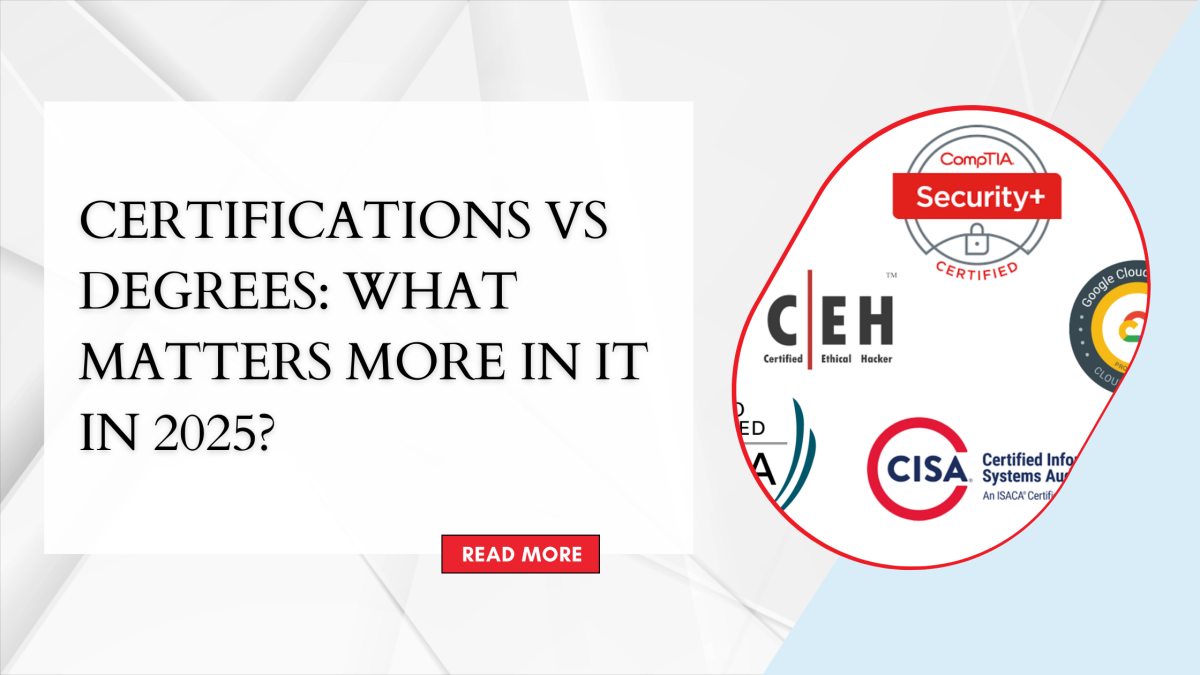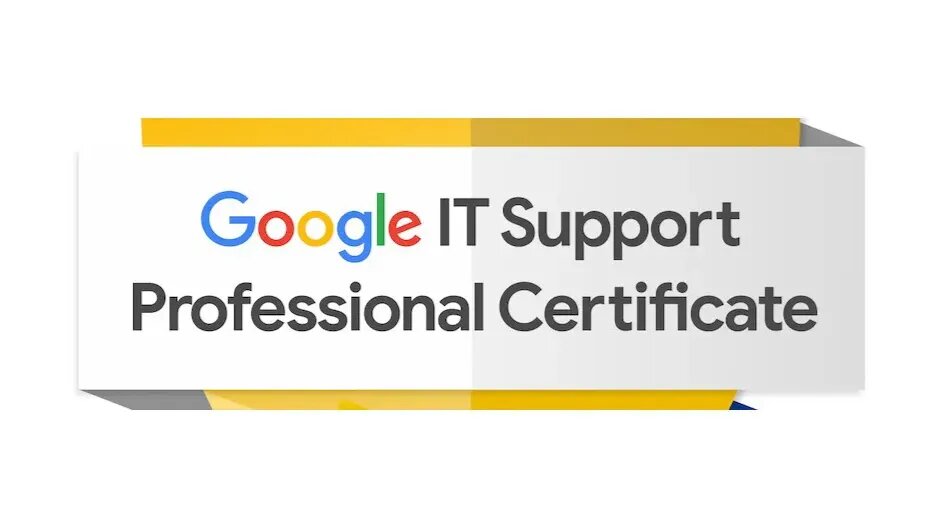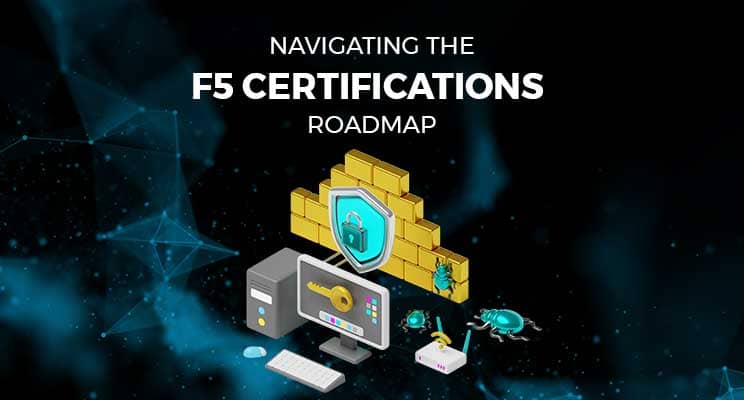CERTIFICATIONS VS DEGREES: WHAT MATTERS MORE IN IT IN 2025?

TOP IT CAREER PATHS IN 2025: FIND THE RIGHT FIT FOR YOUR FUTURE IN TECH
19 May 2025
AI JOB ROLES IN 2025: WHAT EMPLOYERS ARE LOOKING FOR IN AUSTRALIA
9 June 2025Remember the days when parents would proudly (or sometimes critically) compare their children’s achievements, “He’s completed this degree,” or “She’s reached this position and earns this much”. Times have changed. Today, it’s often the younger generation advising their parents to value not just formal education, but also skill development.
This shift reflects a broader change in the job market, especially in the rapidly evolving world of IT. With new technologies and methodologies emerging constantly, staying competitive means continually updating your skills.

Why Certifications and Skills Matter in 2025
Here are some key reasons why certifications are becoming just as important, if not more as traditional degrees in IT:
A. Global Recognition and Opportunities
Certifications are often internationally recognized, giving job seekers the flexibility to apply not just locally but globally. This widens career opportunities beyond geographical boundaries.
B. Employer Expectations
Many employers now look for candidates who bring something extra to the table. Certifications can often give you a competitive edge over others who may only hold a degree.
C. Keeping Up with Rapid Change
The IT industry evolves daily. Failing to stay current means falling behind. Certifications help you stay updated with the latest tools, technologies, and best practices ensuring you’re ready for modern job roles.
D. Career Advancement and Flexibility
Few professionals want to remain stagnant in their careers. Certifications can open the door to higher-paying positions or allow a transition into new specializations, whether that’s moving into cybersecurity, cloud computing, or leadership roles.
E. Bridging the Skills Gap
Employers frequently highlight the growing gap between available jobs and qualified candidates. Many applicants aren’t aware that their lack of up-to-date skills is holding them back. Certifications help bridge this gap by aligning your capabilities with current industry standards, often going beyond what is taught in traditional degree programs.
Top IT Certifications to Consider in 2025
If you’re aiming to boost your IT career in 2025, pursuing industry-recognized certifications is a strategic move. Here’s a list of top certifications, suitable for both aspiring and experienced professionals:

1. AWS Certified Solutions Architect – Associate
Why it matters:
Validates your ability to design and deploy secure, scalable, and resilient applications on AWS, one of the leading cloud platforms.
Career Path:
Cloud Architect, Cloud Engineer, Solutions Architect, DevOps Engineer.
JRP Track:
2. Microsoft Certified: Azure Solutions Architect Expert
Why it matters:
Demonstrates your expertise in designing cloud and hybrid solutions that run on Microsoft Azure, including infrastructure, security, and DevOps.
Career Path:
Azure Solutions Architect, Cloud Consultant, Infrastructure Architect.
JRP Track:
3. CompTIA Security+
Why it matters:
Globally recognized as a fundamental cybersecurity certification, covering best practices in risk management, incident response, and network security.
Career Path:
Cybersecurity Analyst, Security Engineer, Systems Administrator.
JRP Track:
4. Certified Ethical Hacker (CEH)
Why it matters:
Equips you with skills to legally and ethically test systems for vulnerabilities using real-world hacking tools and techniques.
Career Path:
Ethical Hacker, Penetration Tester, Security Consultant.
JRP Track:
5. Cisco Certified Network Associate (CCNA)
Why it matters:
Serves as a foundational networking certification and proves your ability to manage routers, switches, and troubleshoot networks.
Career Path:
Network Administrator, Network Engineer, IT Support Specialist.
JRP Track:
6. CompTIA A+
Why it matters:
Entry-level certification covering fundamental IT skills in hardware, troubleshooting, mobile devices, and operating systems.
Career Path:
IT Support Specialist, Help Desk Technician, Desktop Support Analyst.
JRP Track:
7. Google Cloud Professional Cloud Architect
Why it matters:
Prepares you to design and manage secure and scalable applications on the Google Cloud Platform, widely adopted by startups and enterprises alike.
Career Path:
Cloud Architect, GCP Engineer, Cloud Consultant.
JRP Track:
8. Certified Information Systems Auditor (CISA)
Why it matters:
Recognized globally for IT audit, compliance, and security governance expertise. Vital for professionals involved in monitoring, controlling, and assessing IT systems.
Career Path:
IT Auditor, Compliance Analyst, Information Security Manager.
JRP Track:
Final Thoughts
In 2025, both degrees and certifications have their place, but in the fast-moving IT industry, practical, validated skills are often the deciding factor. Investing in certifications not only enhances your resume but also builds the confidence and competence needed to thrive in today’s job market.




